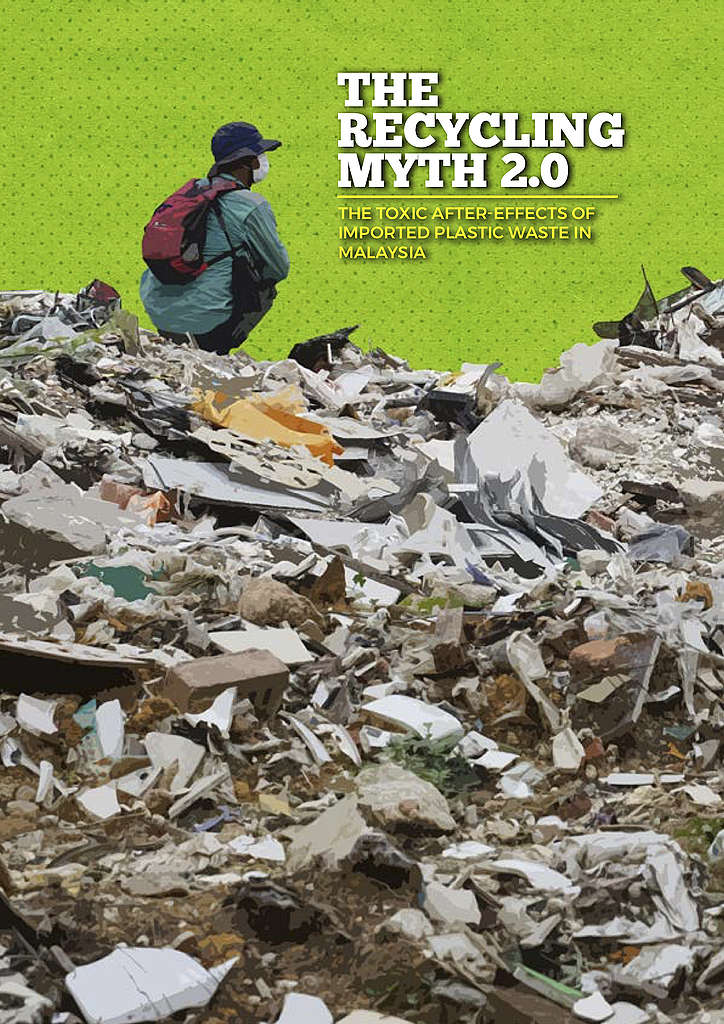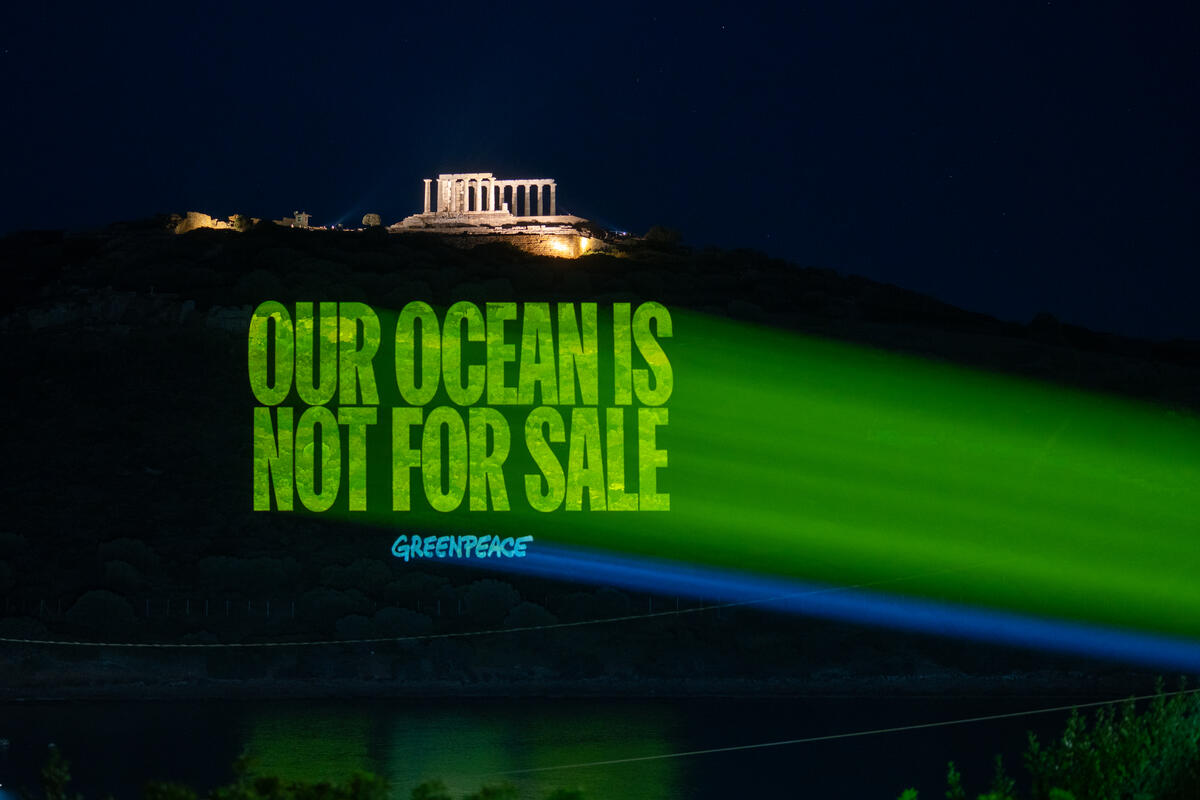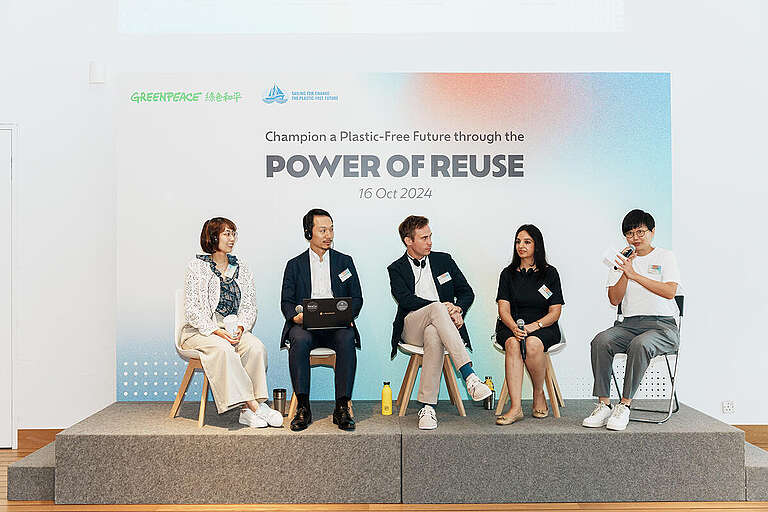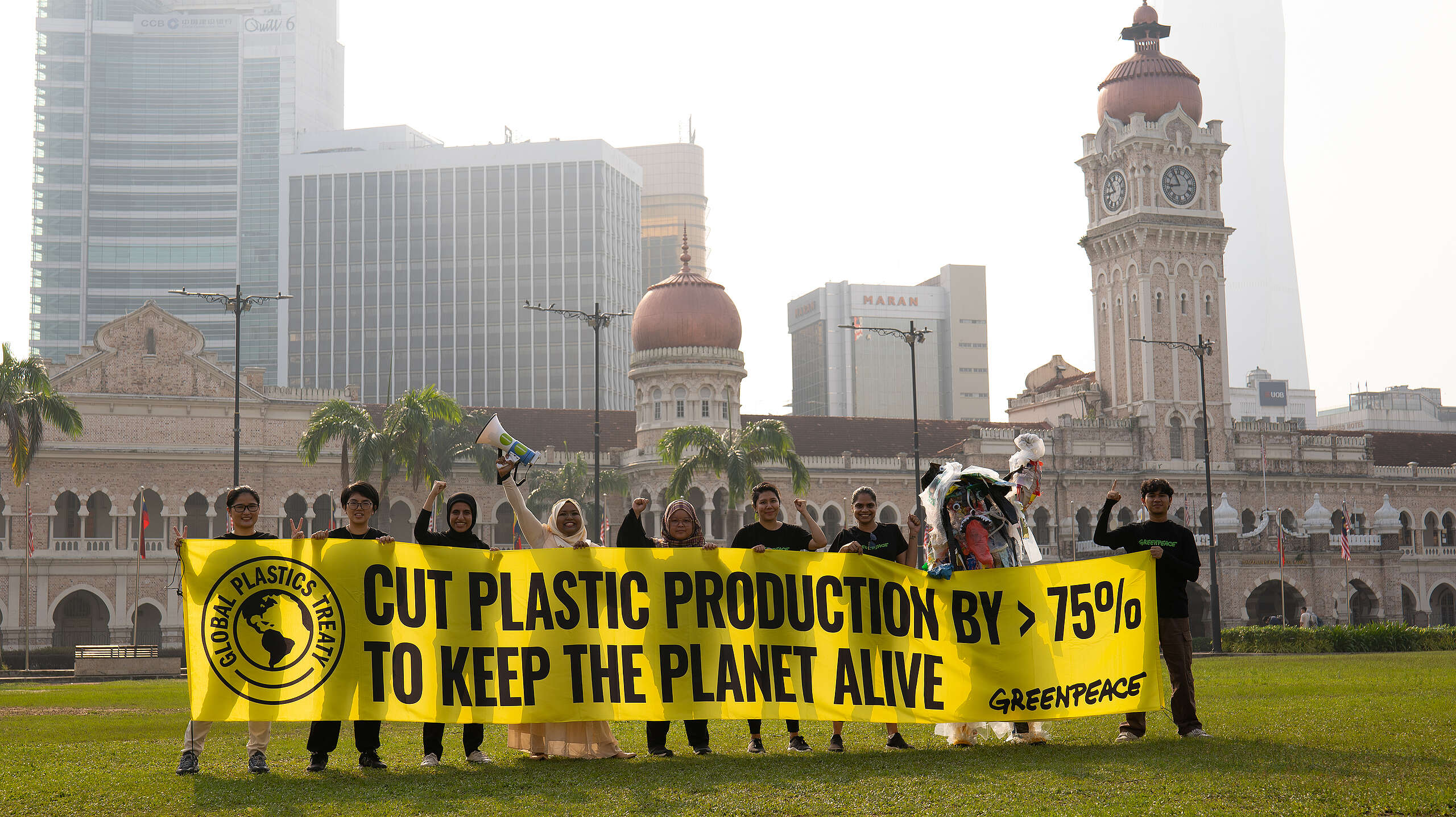EXECUTIVE SUMMARY

Issues related to plastic waste were raised and highlighted in Malaysia following the release of ‘The Recycling Myth’ report by Greenpeace Malaysia in November 2018. Investigations into the issue began after China’s ban on imports of plastic waste. Since then, there have been increasing news reports on pollution, landfills and plastic recycling factories affecting neighbourhoods relating to the imported plastic waste trade. By early 2019, the Malaysian government publicly announced the decision to send back imported waste intercepted at the Klang and Penang ports to the respective origin. However, what remains uncertain is the status of the discarded waste that remains within Malaysia.
To answer that pertinent question, a joint investigation was carried out in July and August 2019 by Greenpeace at several locations suspected to have onsite imported plastic waste. It is important to note that overall, the findings from these investigations have revealed that shredded plastic disposed at several dumpsites in Malaysia contain a range of metals, metalloids and organic chemicals, including persistent organic pollutants (POPs), which have likely been contaminating the surrounding environments during their storage or processing/recycling activities. The results of the chemical analysis have been published in a technical report based on analysis done by Greenpeace at the Greenpeace Research Laboratories (2019).
Key Findings
- Investigations at the dumpsite in Pulau Indah (refer to Figure 1) where waste was burned, showed a number of post-burn residues that were found to contain several contaminants – some in forms that are likely more mobile compared to the source plastics, with additional chemicals or compounds generated during or as a result of the combustion process.
- Significant contaminants with hazardous chemicals including heavy metals and brominated flame retardants were found at sites where plastic waste were burned.
- There is evidence that surface waters adjacent to, or downstream from, some of the plastic disposal or processing sites investigated in this study are contaminated with solid waste and chemicals, which may have originated from the plastics discarded at these sites or equivalent operations within the same area.
- Investigations at the unregulated, and now abandoned, dumpsite at Sri Cheeding has been filled and covered with shredded plastics as a layer of topsoil. The layer of topsoil is contaminated with high concentrations of heavy metals including cadmium and lead, relative to background environmental levels. Laboratory tests also revealed the presence of persistent organic compounds such as brominated flame retardants and phthalates from this site.
The detection of heavy metals like cadmium and lead are a matter of concern. Most of the pollutants identified in the tests conducted can potentially remain in the soil for a very long period of time. High levels of the heavy metals identified can also cause secondary pollution to nearby water sources. Such contamination has the potential of bearing hazardous impacts to flora, fauna including microorganisms and humans. Lead is known to cause intellectual disabilities with no known safe levels in the blood. Exposure to lead could result in decreased intelligence in children, and may lead to behavioural difficulties and learning problems (CHEMtrust 2017).
Heavy metals, polycyclic aromatic hydrocarbons (PAHs), some of the volatile organic compounds (VOCs), and flame retardants (FR) detected in the samples are toxic chemicals, and have been identified in studies to potentially cause diseases resulting in the inhibition of mental growth in children, causing endocrine disruption, reproduction dysfunction, damage to organs (liver and kidney), cardiovascular and respiratory diseases, Alzheimer’s disease, Parkinson’s disease, as well as trigger various cancers.
Recommendations
Based on the investigation, Greenpeace Malaysia recommends the following:
For the Malaysian government:
- An inclusive rehabilitation action plan that involves local communities for the clean-up and rehabilitation of the polluted sites, especially in areas used for open burning and illegal dumping of imported plastic waste:
i) The Ministry of Environment and Water should conduct further environmental investigations into the affected areas, particularly on the risk of leakage of hazardous substances into air, soil and water sources.
ii) The Health Ministry should conduct health impact studies and provide healthcare support to affected residents due to the pollution caused by imported plastic waste.
iii) The Malaysian Anti Corruption Commission should reactivate its Environmental Corruption initiative with specific emphasis on plastic pollution and the corruption related to the management of plastic waste. - The need to revisit and enhance the Freedom of Information Act will ensure waste trade transparency. Despite the government’s commitment to shut down illegal facilities and send plastic waste back to the countries of origin, there is still an influx of complaints lodged by local communities regarding pollution by unregulated plastic waste facilities. In order to effectively curb these public health concerns, it is imperative that the right to full and frank disclosure must be codified, enabling stakeholders such as local communities, NGOs and the media to obtain crucial information relating to waste trade from local authorities and the Federal Government.
- The need to amend or replace the Environmental Quality Act 1974 with an Environmental Protection Law accompanied by more stringent and effective regulations and rules, accompanied by uncompromising enforcement, is imperative. Stricter policies, rules and regulations must be enforced and action must be taken against illegal operators. Efficiently regulating the industry ensures sustainability, curtails corruption, and eradicates illegal recalcitrant players. The punishment for environmental crimes must also be enhanced to ensure that it plays a pivotal role as a deterrent, and in driving compliance.
For the global community (plastic waste importing and exporting countries):
- Investigate the plastic waste industry with a focus on possible corrupt, fraudulent and illegal practices by exporting countries and local unlicensed operators. Immediate action must be taken against companies that export plastic waste to unlicensed operators.
- Put in place legislation requiring local councils and recycling companies in countries exporting plastic waste to conduct due diligence on importers. Impose hefty penalties on councils or companies that fail to carry out due diligence prior to importation and exportation.
- Promote a global agreement to combat the flood of plastic. The governments from plastic waste exporting countries in Europe, Australia, New Zealand, the United States should immediately work towards a binding international agreement to resolve the plastic waste problem. An alliance of German Civil Society Groups recently called on the German government to promote a global agreement to combat the flood of plastic (Greenpeace e.V. et al 2020). This should cover all aspects of the life cycle and must further the protection of the climate, the oceans and biodiversity. A first step would be for those states whose waste is proven to pollute the environment to contribute to the measures and costs of the proper disposal and clean up of unregulated landfills in Malaysia.
- Prioritise a plastic pollution reduction plan to reduce unnecessary single-use plastic in phases, to set up clear reduction targets of single-use plastic in accordance with an action plan that focused on developing alternatives based on systems of refill and reuse, while increasing the recycling rate.
- Enforce Extended Producer Responsibility (EPR) in the production of plastics by regulating corporations that produce unnecessary single-use packaging for products, requiring them to track products from cradle to grave in order to ensure and strengthen the transparency of plastic usage, disposal and recycling systems internationally.




Discussion
I do support ban plastic’s
Is this a fact.? I read: “The amount of waste produced per year, per person, puts Canada in 8th place in the world of most waste generated. Yet despite this, only 9% of waste is recycled, the rest ends up in landfills across the country.” Alarming and unacceptable.!
Please cut down on single use plastics.
The mature one was 30 mm while all others were 13 mm or less augmentin 1 gram price
Real instructive and excellent complex body part of written content , now that’s user friendly (:.
i support herbal products because they are all natural and from what i know, they do not carry nasty side effects;;